Nearly a decade ago, Acre Coffee introduced a Portland-inspired minimalist coffee vibe locally.
If you’ve ever mistaken Acre Coffee for an outside chain, you wouldn’t be alone. In fact, owners Steve DeCosse and his wife Sharon Fitzgerald laugh with an easy familiarity when asked about the misconception.
“People assume we are a franchise,” DeCosse says on a sunny weekday morning outside of Acre’s Petaluma Boulevard location, one of half a dozen in Sonoma County. “I think it’s because we do such a great job with the design and execution—and maybe because the staff wear T-shirts with the logo on it.”
Fitzgerald, sitting next to him, smiles and nods.
“There are so many shops— six, that’s a lot!” she says. “People wonder how can it be, but they just don’t know Steve!”
DeCosse’s journey into the coffee business started off slow, literally. In 1990, he opened the The Slow Club, a restaurant in San Francisco modeled after farm-to-table pioneer Zuni Café.
That’s also where DeCosse first started imbuing the design of a restaurant with as much importance as the local, seasonal ingredients used in the kitchen. Eventually, The Slow Club made San Francisco Chronicle food critic Michael Bauer’s list of the most important Bay Area restaurants of the last 30 years.
DeCosse parlayed the experience into Acre Gourmet. With founding partner Britt Galler, he developed a school lunch company based around organic meals made from scratch. They currently run school lunch programs at five schools in the city.
Bitten by the Coffee Bug
A stint living in Portland in 2009 resulted in a “coffee bug” thanks to Stumptown Coffee’s single-origin style. DeCosse and Fitzgerald returned to Sonoma County and settled in Sebastopol with daughter Bea, now 11. “Should we open a coffee shop?” they wondered. “We let the idea marinate, and then a space came available in Petaluma,” says DeCosse.
With a $40,000 investment for equipment, they opened the first Acre in downtown Petaluma in partnership Britt Galler. The coffee program was centered around single-origin coffees from places like Sightglass, the San Francisco roaster. DeCosse says they “ran the store lean” with a focus on limited but discerning coffee and food selections. The keen design, airy environment, and attention-to-detail by trained baristas soon made it a community destination.
They used the profits from that first shop to take on a new lease at Montgomery Village in Santa Rosa. This has since become their busiest shop. (Lately, that’s been surpassed by their newest location in Sebastopol.)
Then, it was time to get into coffee roasting. DeCosse hired a head roaster and bought a vintage steel drum ProBat coffee roaster from Blue Bottle. He works with a coffee broker to source green beans from regions like Rwanda and Central America.
“We roast the beans at a lower temperature for a longer time,” he says. “It’s a longer cooked bean, so it’s more fully developed. We don’t burn the coffee.” The end result is a subtle, tasty, medium roast perfect for a yummy cappuccino.
In turn, he and Fitzgerald focused on brand management and store design. It helps that DeCosse has a master’s degree focused on architectural critical theory.
“Steve is a guy who looks for experts and passionate people and brings them together,” says Fitzgerald. “We’ve always had that core value of community and super cool spaces and design, a place you want to be.”
DeCosse says his goal is to open a new shop or launch a new project every year. After Montgomery Village, they opened the larger Petaluma location that houses a retail shop, production kitchen, and roastery. And then a third location on Petaluma’s East Side, along with a shop in downtown Santa Rosa. The Sebastopol store, on the site of a former Starbucks, opened its doors in July.
Considering the company’s growth over the past few years, it’s no surprise that some people mistakenly think of Acre as being a chain owned by some far-off corporation—but they aren’t. DeCosse relays with pride how they’ve actually expanded without capital from outside investors.
“The building of these stores came from the community spending money with us,” says DeCosse. “We’ve been solicited for large amounts of money to grow the brand, but once you do that, you lose control and end up losing the local feel and the integrity of the products. Before you know it, you’ll have a whole grab-and-go case full of plastic bottles and stuff made somewhere else. We’ve funded the stores by way of our customers.”
Next on the list of accomplishments is Acre Pizza, anticipated to open later this year in the building formerly occupied by Village Bakery in Sebastopol. DeCosse signed a lease with The Barlow over the summer. Red Bird Bakery will take over half the space, using it for wholesale bakery production. The pizza dough will be a collaboration between the bakery and Acre.
But, wait. The list is longer. On October 1, Acre will roll out a national subscription coffee program. Soon, you’ll be able to order online a bag or two of coffee for delivery to anywhere in the country.
With new projects on the horizon, and after hiring Director of Operations Eddie Ceballos last year, DeCosse and Fitzgerald have stepped away from the daily operations at the coffee shops. Ceballos steps in at a time when the company has expanded from 65 employees to 108. Revenue has increased from $3 million annually in 2017 to over $4.8 million in 2018. Ceballos, who lives in Santa Rosa, is applying his 18 years of experience in the corporate, natural foods grocery world to streamlining operations at Acre. He’s already helped spearhead the development of a set of seven core values and a mission statement “so staff members can be here for something other than a paycheck.”
“Millennials like a sense of focus and purpose,” Ceballos says. “They want to know what a company stands for.”
Baristas are trained by coffee educator Victoria Hendrickson. It’s a rigorous process involving a four-day class, follow-up tests, on-the-job shadowing, and more. This is all before the barista is officially released to an afternoon coffee shift. When they are really ready to make the perfect cappuccino, they are promoted to the lucrative morning shifts when the customers flow along with the tips.
The growing vision for the company keeps everyone busy. DeCosse says he’s never drawn a paycheck from Acre Coffee (though he does draw one from Acre Gourmet).
So why does he do it?
“It’s a passion,” he says. “Someday we’ll get paid, hopefully. But you can’t grow if you are taking everything out of it. If it’s all driven by profit, you can’t buy the best coffee, you can’t source the best cheese, you can’t hire people and pay them well. Everybody is entitled to make a profit, but until we get to a different size, everybody has to be happy in their roles and the sourcing has to be right, and customers have to be happy, then you can start looking at what you can extract in terms of revenue.”
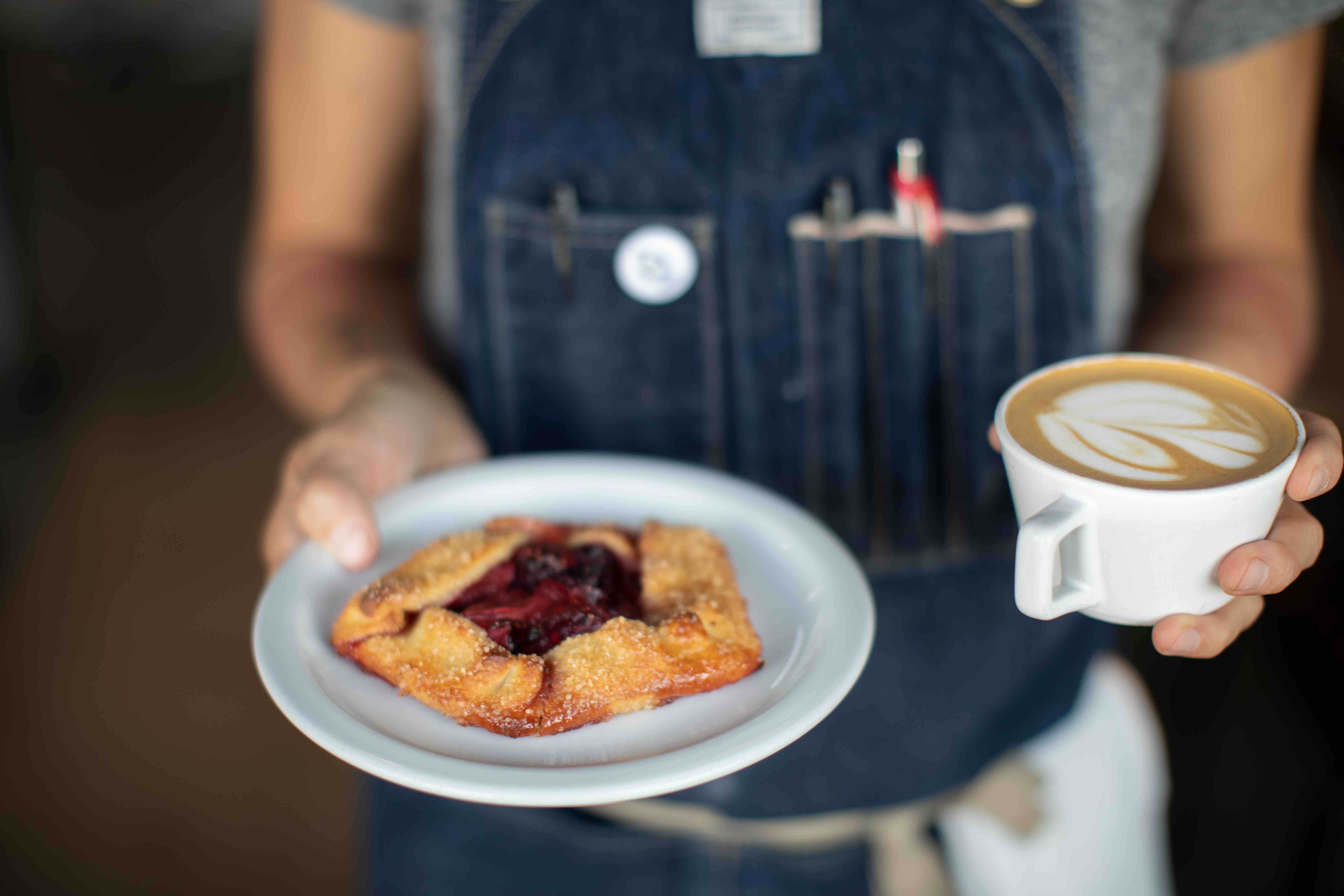
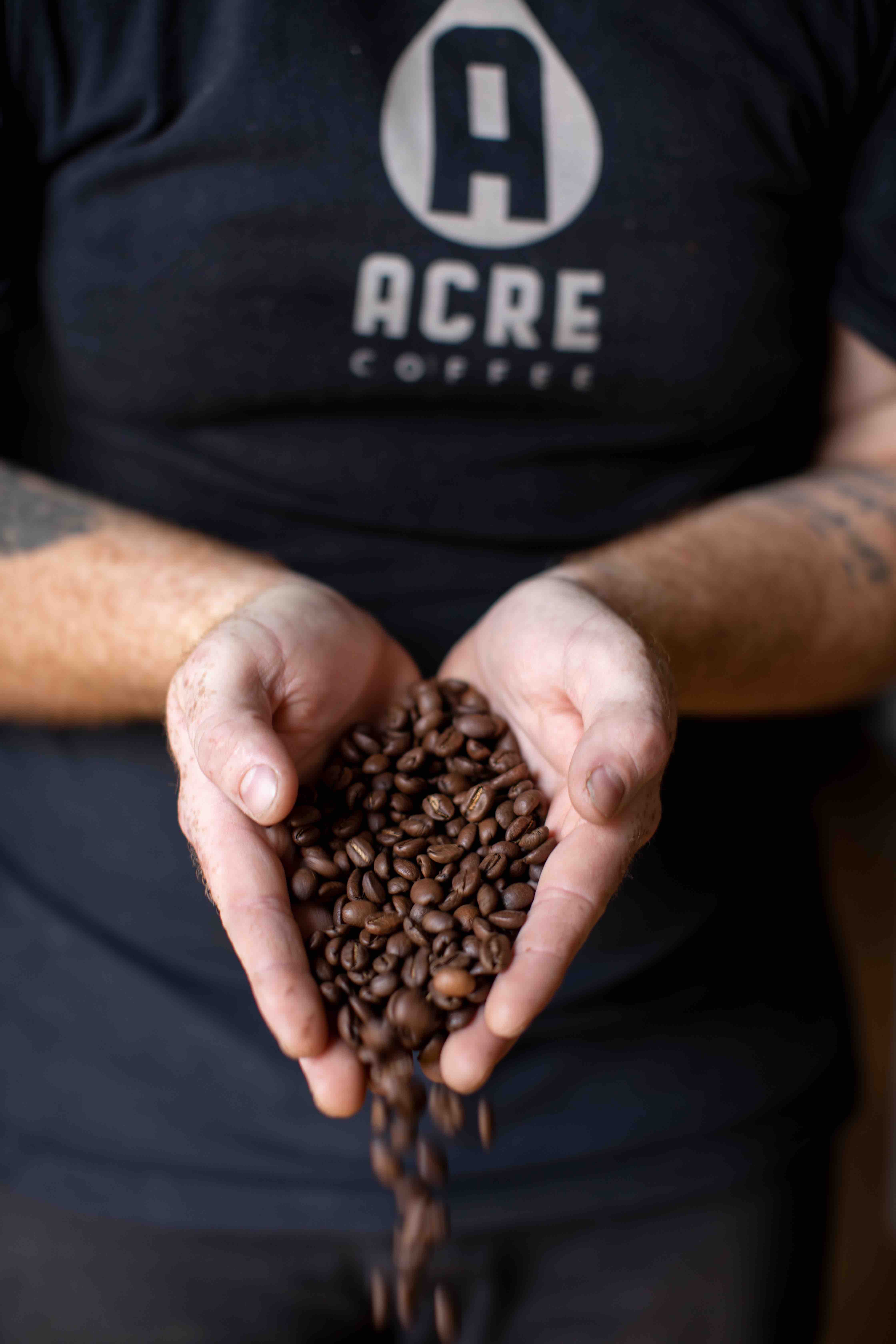
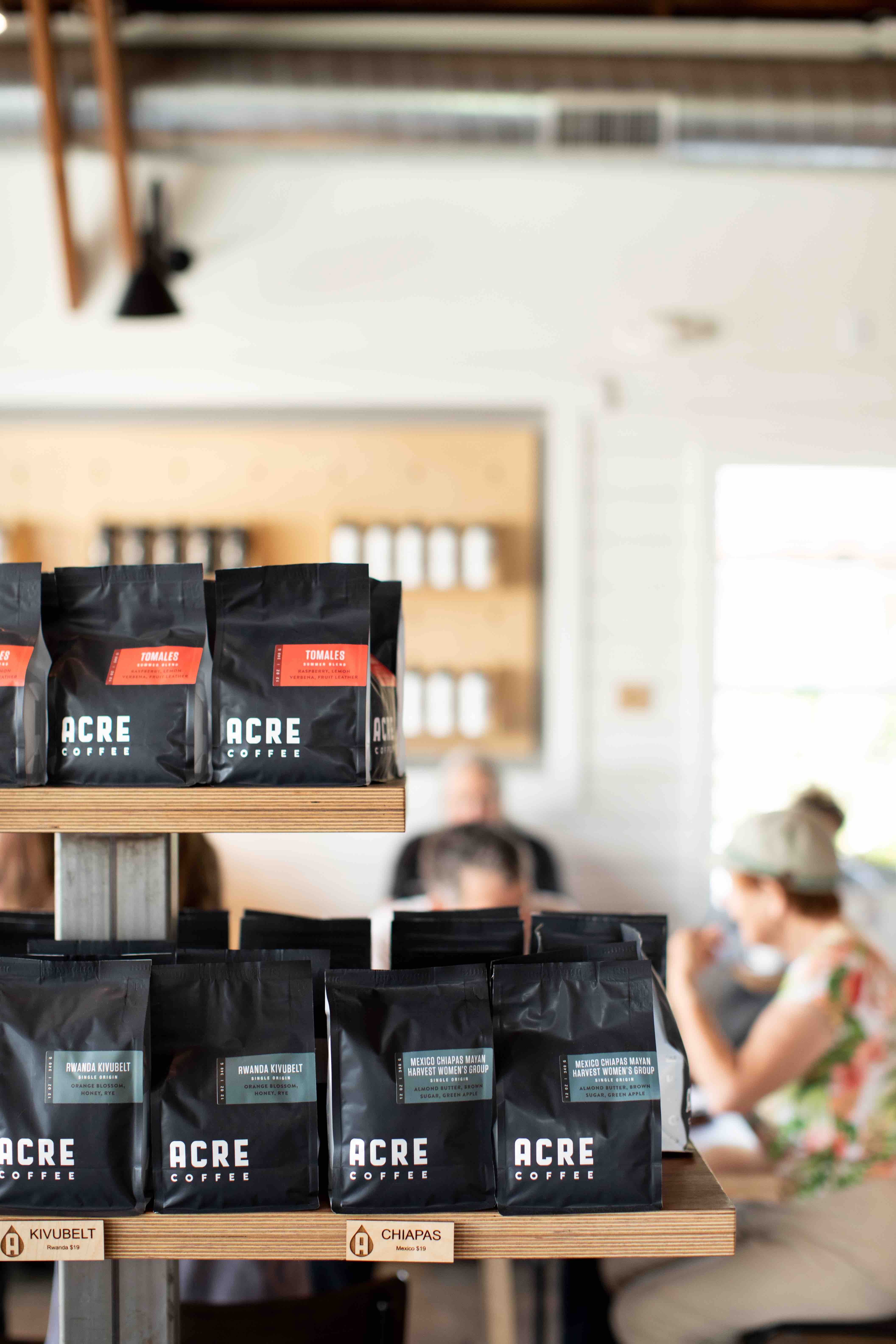

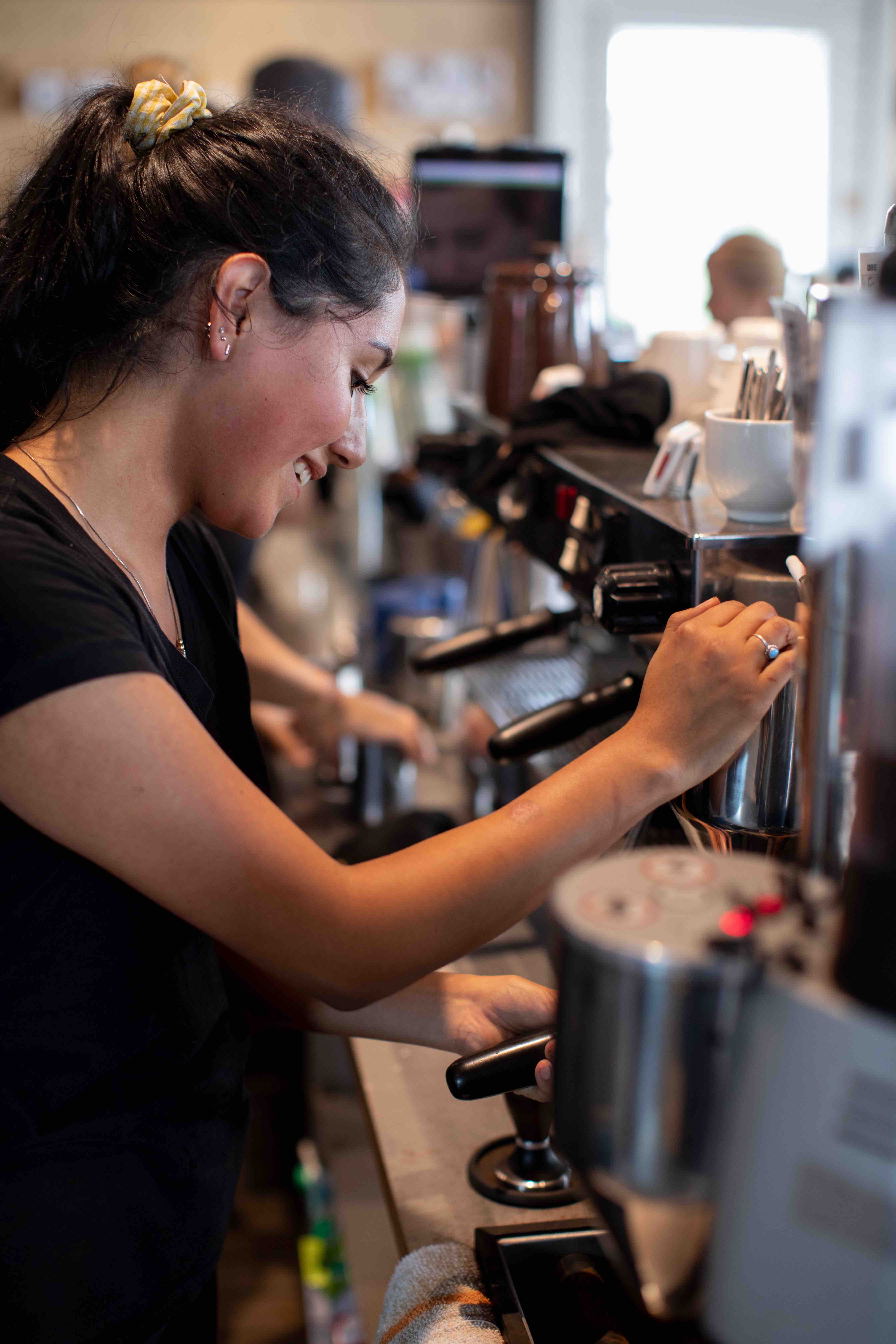
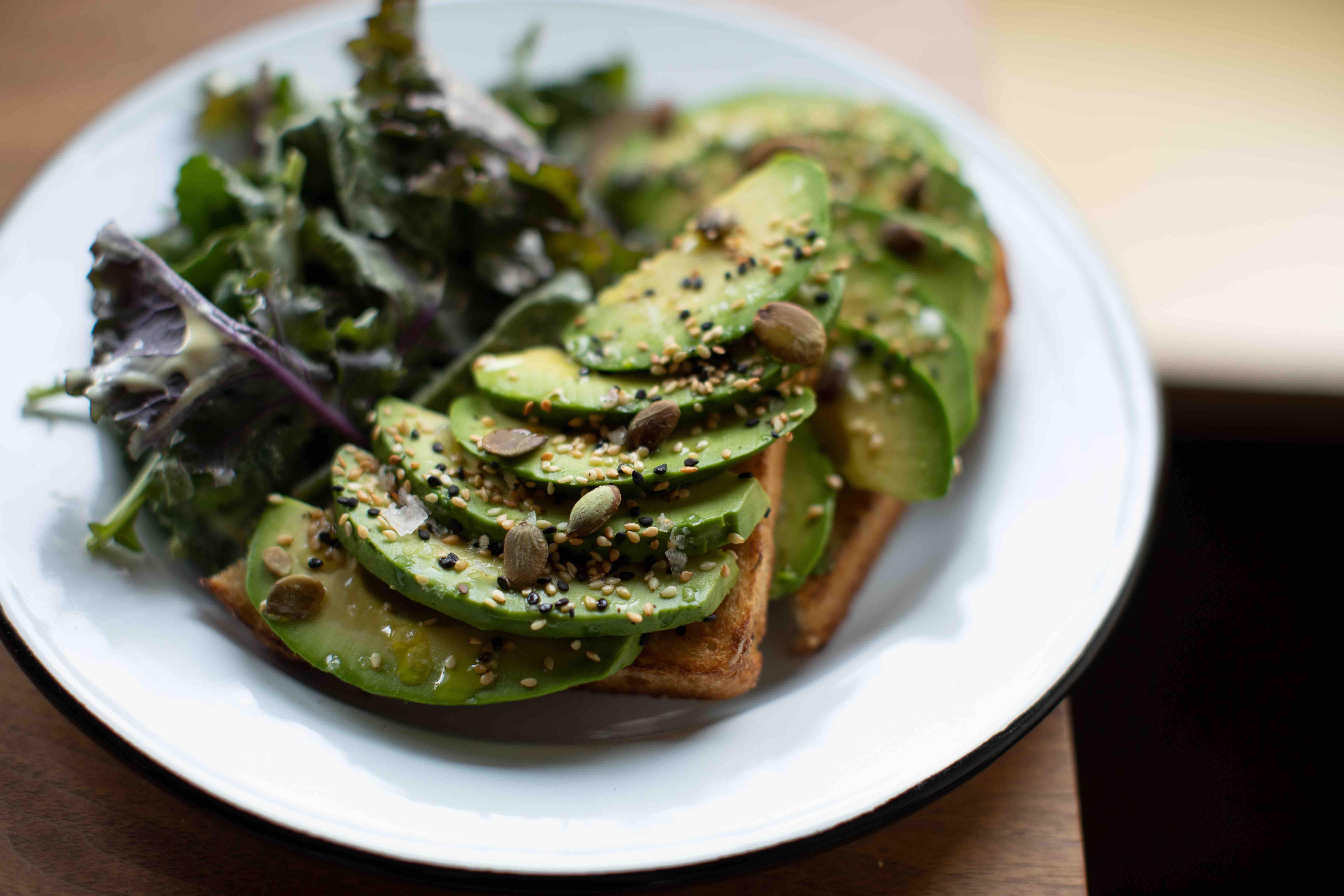
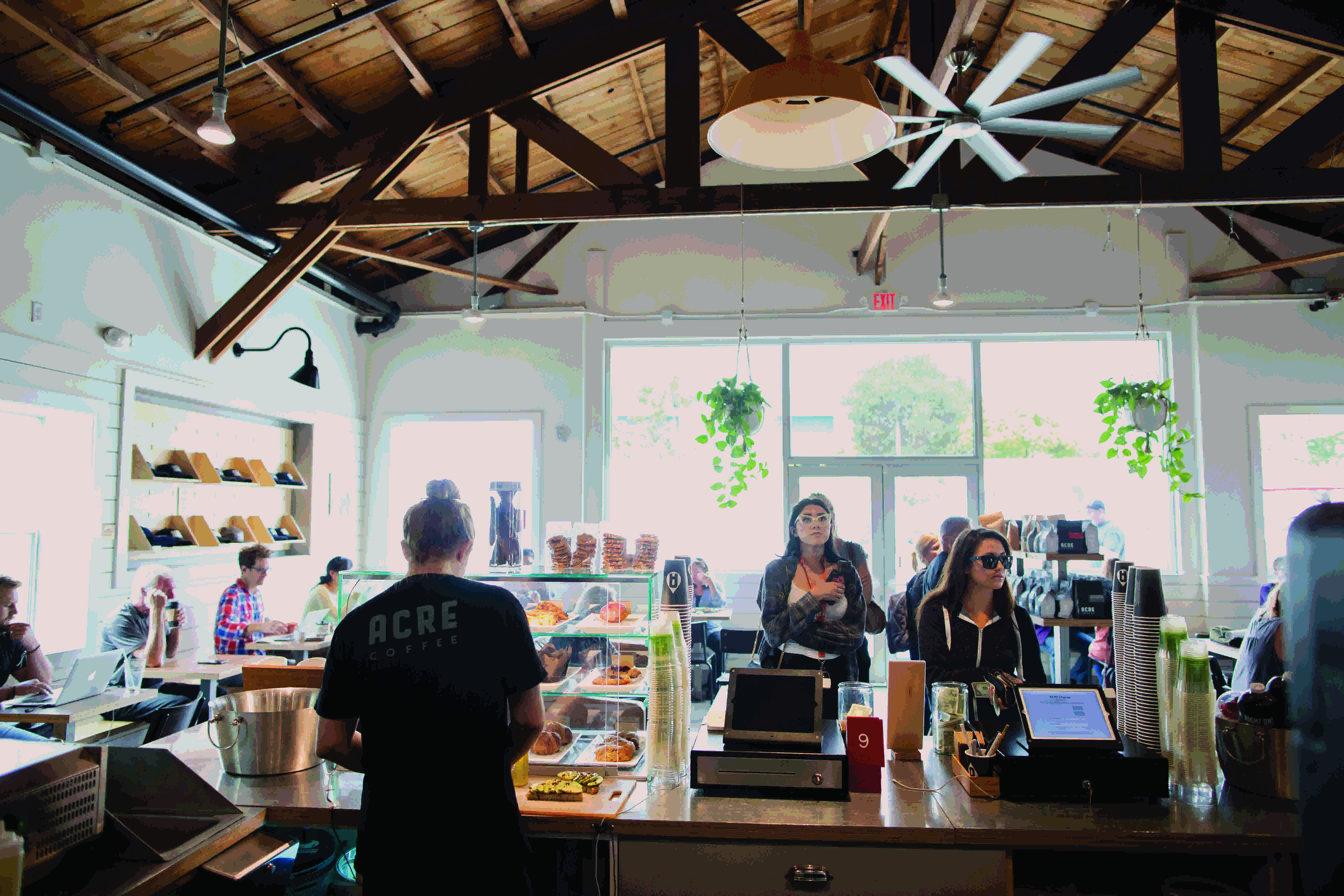
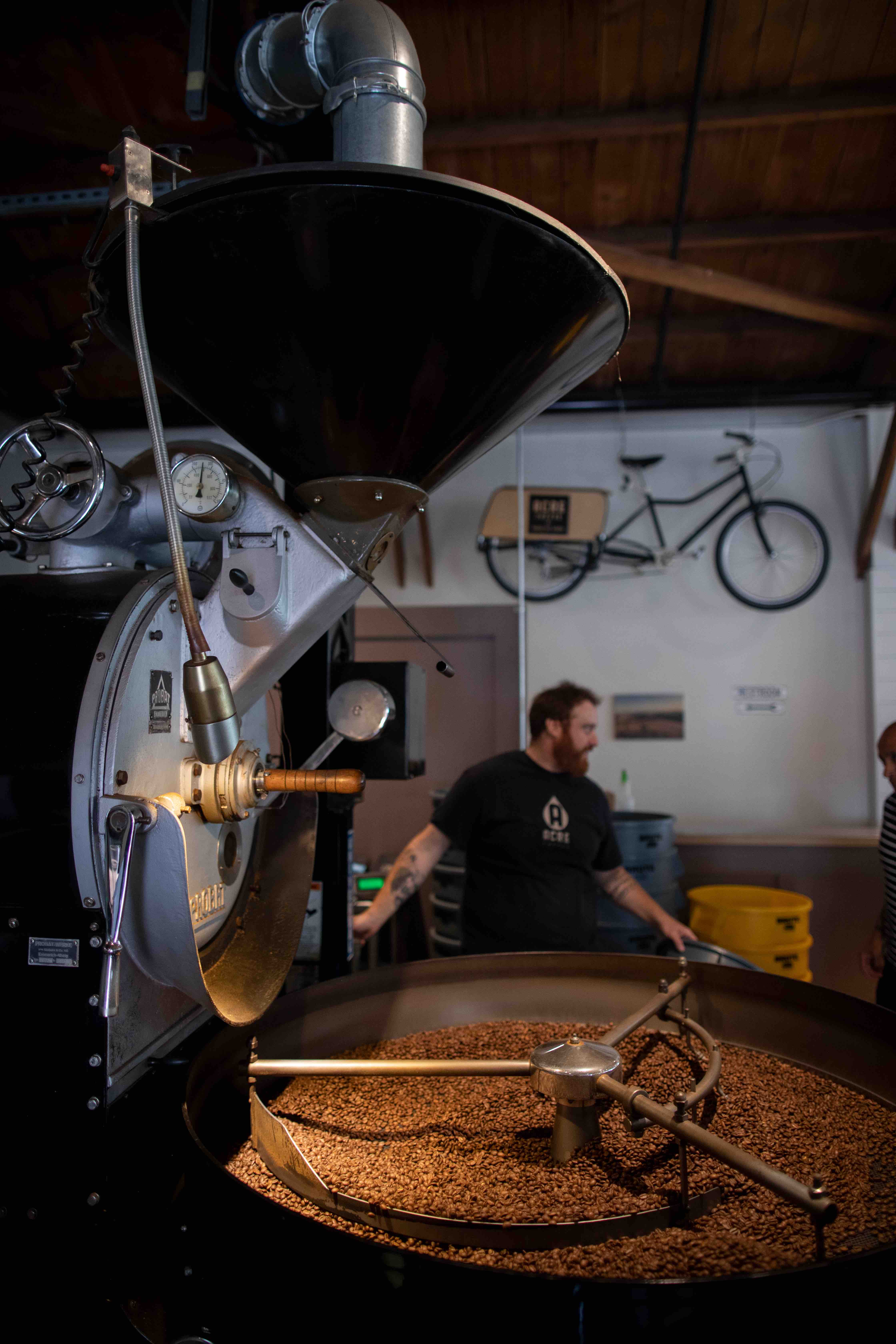

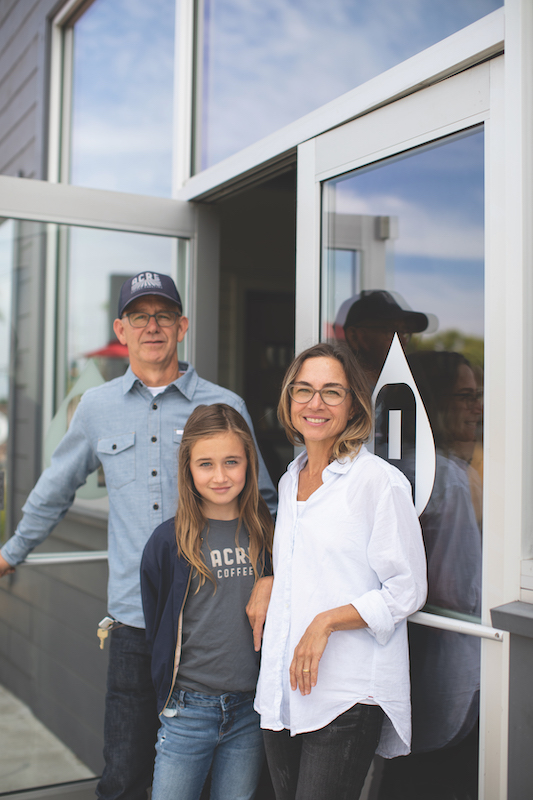
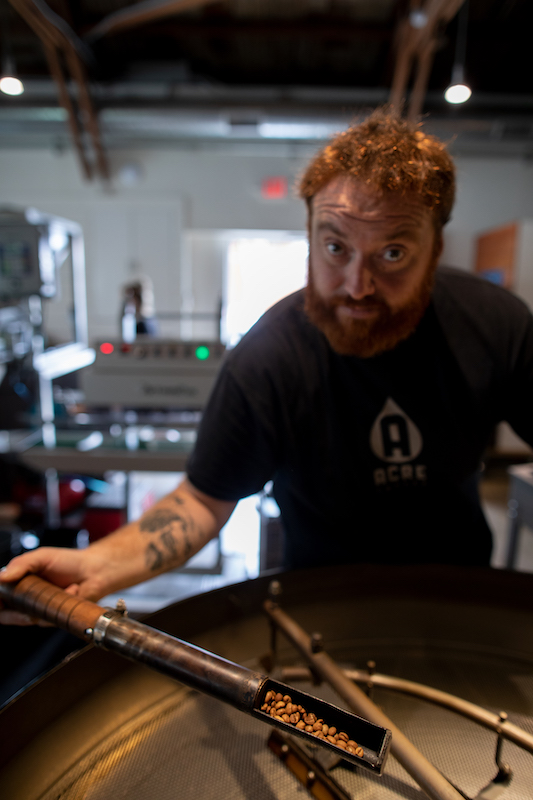
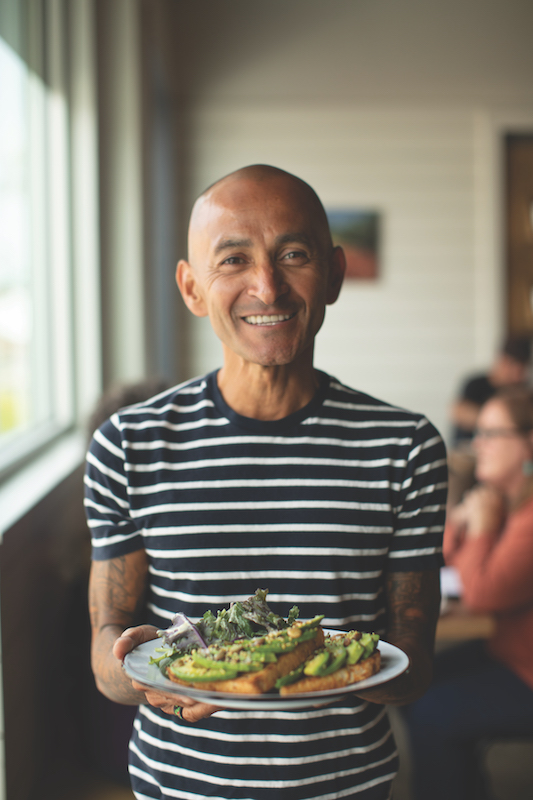
awesome